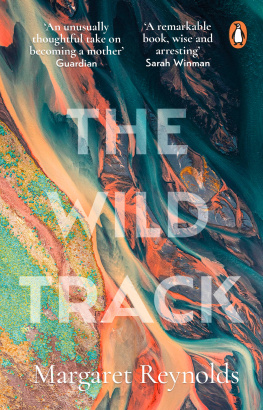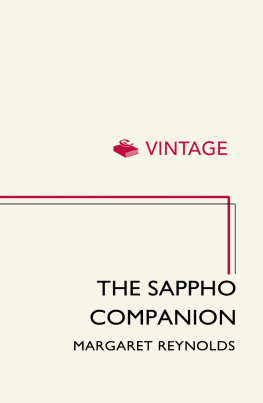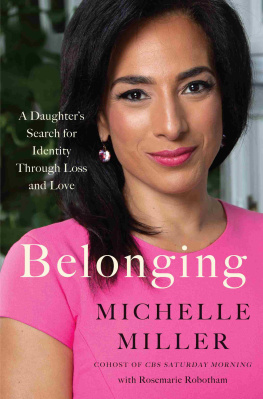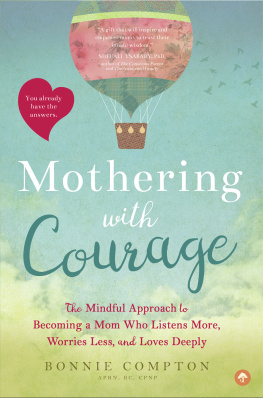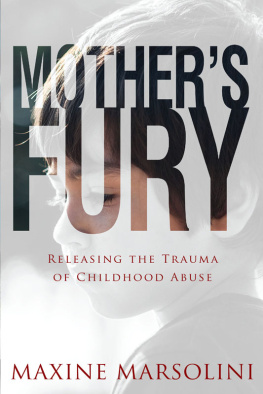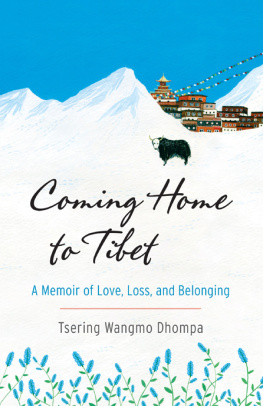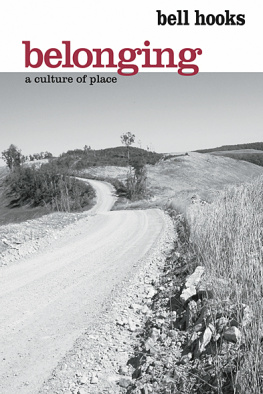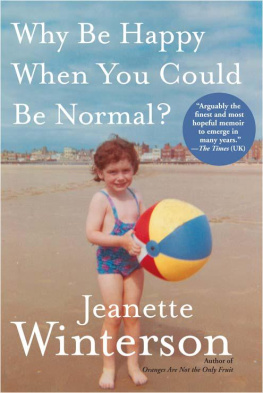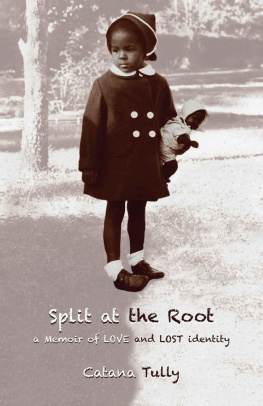
Also by Margaret Reynolds
The Penguin Book of Lesbian Short Stories
The Sappho Companion
Victorian Women Poets: An Anthology
Margaret Reynolds
with
Lucy Reynolds
THE WILD TRACK
Adopting, Mothering, Belonging

TRANSWORLD
UK | USA | Canada | Ireland | Australia
New Zealand | India | South Africa
Transworld is part of the Penguin Random House group of companies whose addresses can be found at global.penguinrandomhouse.com.

First published in Great Britain in 2021 by Doubleday
Penguin paperback edition published 2022
Copyright Margaret Reynolds 2021
The moral right of the author has been asserted
Cover design by Irene Martinez Costa/TW
Cover image Extreme-Photographer/Getty Images
This book is substantially a work of non-fiction based on the experiences and recollections of the author, Margaret Reynolds. In some cases names of people, places, dates and the sequences of the detail of events have been changed solely to protect the privacy of others.
Every effort has been made to obtain the necessary permissions with reference to copyright material, both illustrative and quoted. We apologize for any omissions in this respect and will be pleased to make the appropriate acknowledgements in any future edition.
ISBN: 978-1-473-58200-2
This ebook is copyright material and must not be copied, reproduced, transferred, distributed, leased, licensed or publicly performed or used in any way except as specifically permitted in writing by the publishers, as allowed under the terms and conditions under which it was purchased or as strictly permitted by applicable copyright law. Any unauthorized distribution or use of this text may be a direct infringement of the authors and publishers rights and those responsible may be liable in law accordingly.
For Lucy
with Lucy
and in memory of
Mona Howard
Lisa Jardine
Adrienne Reynolds
I have seen the sun break through
to illuminate a small field
for a while, and gone my way
and forgotten it. But that was the
pearl of great price, the one field that had
treasure in it. I realise now
that I must give all that I have
to possess it
R. S. Thomas, The Bright Field
Prologue
WE HAVE FINISHED the interview. My producer says, Ill just record a bit of wild track. Anyone who works in broadcasting in film or in sound will know about wild track. You capture the substance: tape the interview; shoot the scene; lay down the number. But then you pause, everyone stays in place, and you switch on the microphone to collect nothing, space, emptiness, silence.
When I started working for the radio, I was commissioned to present a documentary with producer Nicki Paxman. On that occasion we were talking to the composer John Tavener at his home, and this was when I first heard those words: Ill just record a bit of wild track. Practically speaking, it is a recording of the atmosphere in the room, which a producer can use to bridge the gap between one section of interview and another. So it is a tool in the editing process. But the track has to capture the same ambient sound as when the interview was conducted. And sound is affected by bodies breathing, beating and simply being present.
So we all sit there producer, interviewer, interviewee listening to the distant traffic, a dog barking, someone far off asking a question, water gurgling in the pipes, birdsong. I was enchanted. Such a beautiful term for simply paying attention to silence, to living.
But I have since come to regard wild track as a parallel to and a parable for so much that happens in life. You go forth with a task. You ask some questions, you receive some answers. Those questions and those answers are what you came for, what you intended to collect, what you planned to create. You get to the place and you think it is the place; you think you have arrived where you are meant to be. But then, in a space that is entirely separate and specific, you just listen, in a meditation that opens out beyond the moment, to wherever the moment takes you on the wild track of its own intimate revelations. You never know where it will lead.
First Light
World is suddener than we fancy it.
World is crazier and more of it than we think,
Incorrigibly plural
Louis MacNeice, Snow
THERE IS A little picture that I look at every day. About twelve inches by nine, oil on board eighteenth century, maybe. Very fine brushwork. In the left foreground is a large tree, its widespreading canopy arching over a path, with rocks to the right, mountains in the far distance, all under a pellucid sky. And in the middle is a tiny figure, dwarfed by the landscape. Hard to tell if it is male or female, but wrapped in a red shawl and walking undauntedly towards the light of the sky, towards the dark of the mountain. It is just one person; a lone being. But then, one day, it seemed to me that the questing figure was not alone. In my imagination, voyaging alongside that person was a smaller being a little child, held by the hand. And together they were moving out of the shadow, into the light of the bright field. Every day they marched stalwartly onwards, and yet every day they were still there, still speaking to me of purpose, challenge and hope.
It is hard now to recall when she if she is a she came into my life. It must have been winter. One of those early morning hours of pale light when the slide from dream to wake is fitful, reluctant, slow. There might have been snow dulling sound, filtering sight. But it brought a clarity of thought, and a vision of the possible. On this snowy morning, quiet and half dreaming, I asked myself, What is it that I would like in my life, that I could have now, and could not have had before? And the answer came clearly. A child.
When I wrote this account, some months later, I was staying with friends in Scotland. But the idea was still with me. It was hot an August bank holiday. The sun burnished the terrace, shimmered in the loch below, illuminated the hill of purple heather and the dark trees that framed it all. Some of the party walked the path below us. Someone else was reading the newspaper. Two others chatted quietly a bit further off. I picked up my notebook and wrote, then paused to think about my wish for this child, about the children I knew and had known, about the parents I knew and had known.
The friends I am staying with David and Helen have three children, grown up now, or nearly so in the case of their youngest. When the elder of their two sons was born, we were all in our early twenties, and I conjure up the distant memory of meeting the fair-haired baby. He was the first baby in our contemporary circle so it was a new experience for all of us, and one which I encountered unprepared; conscious, all the same, that it was testing out my feelings. I was wearing a vintage cardigan covered in sequins and beads, not suitable at all for cuddling a newborn. But if his little face was scratched, no reproach was made and I have clearly been forgiven.
I wonder now, as the desire for a child takes hold in my mind so late in the day, how it was that I did not feel it then. I wonder too if perhaps I did. But then David and Helen still offer me a splendid model, for they unabashedly adore children everyone elses along with their own and read bedtime stories, kit them out for fishing, cook up special treats.
Next page
